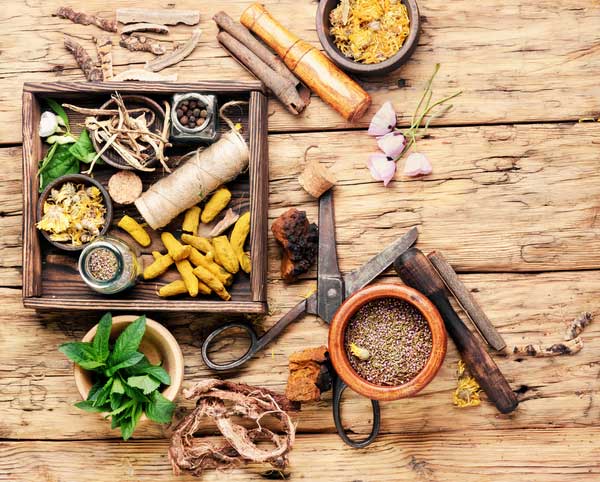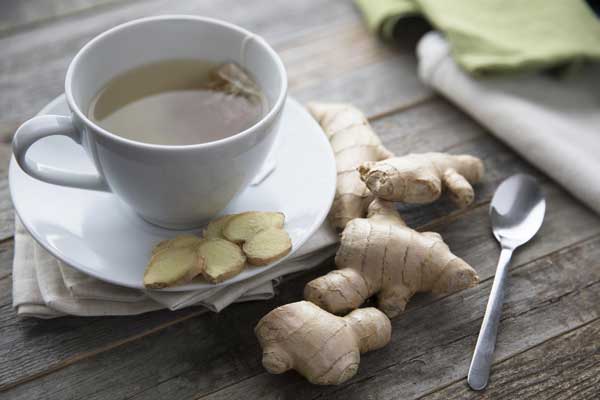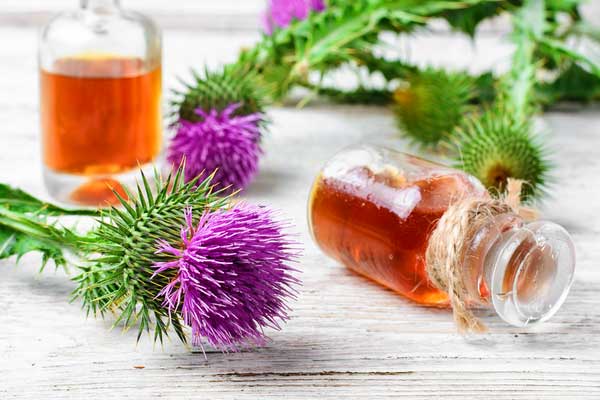Cancer remains one of the leading causes of death worldwide. According to the World Health Organization, cancer accounts for nearly 10 million deaths per year. While conventional cancer treatments like chemotherapy and radiation remain the primary treatment options, researchers have uncovered several herbs from nature that display promising anti-cancer effects.
In this article, we will explore 9 of the top herbs that scientific research indicates may help prevent and even fight cancer.

Disclaimer: This article is for informational purposes only. You should always consult your doctor before trying any herbal supplements, especially if you have cancer or are undergoing other treatments. Let’s dive into the evidence behind these medicinal plants.
1. Turmeric
Turmeric contains the golden compound curcumin, which has been extensively studied for its potent cancer-fighting abilities. Research indicates that curcumin can inhibit tumor growth and development through various mechanisms:
- Acts as a powerful anti-inflammatory and antioxidant, neutralizing free radicals that can damage DNA and initiate cancer formation
- Multiple studies show curcumin can inhibit tumor cell proliferation, angiogenesis (new blood vessel formation to feed tumors), and metastasis in numerous cancer types like colon, prostate, breast and more
Adding more turmeric into your daily diet through curry dishes or supplements may impart protective benefits against several cancers. Always talk to your doctor before making significant dietary changes.

2. Ginger
In addition to aiding digestion, ginger contains active compounds like gingerol, shogaol, and paradol that display promising anti-cancer activities in lab and animal studies.
Specific properties of ginger include:
- Immuno-stimulatory, anti-inflammatory, antioxidant, and anti-tumor effects
- May be especially effective against gastrointestinal cancers like colorectal and ovarian cancer
- When regularly ingested through food, supplements, tea or fresh juices, ginger supports overall health, enhances chemotherapy absorption, reduces toxicity, and protects normal tissue from cellular damage according to integrative oncology reviews
3. Garlic
Garlic is a worldwide staple appreciated for its distinct flavor and health benefits. Garlic also exhibits anti-carcinogenic effects from its potent organosulfur compounds.
These compounds can:
- Induce apoptosis (programmed cancer cell death)
- Halt proliferation signals
- Inhibit angiogenesis
- Detoxify carcinogens
- Boost natural killer immune cells against cancers like leukemia and colon cancer
Population studies link increased garlic intake with reduced risks of gastric, prostate, breast and other cancers – making garlic a potential chemopreventive food. However, more clinical trials are needed to determine effective prevention and treatment protocols. Either way, adding garlic to recipes creates mighty delicious medicine!
4. Flax Seed
Flax seeds contain high amounts of dietary lignans – polyphenols that provide hormone and antioxidant balancing properties. After ingestion, lignans convert within the body into enterolactone and enterodiol, which exhibit anti-estrogenic and chemopreventive activities according to trials.
For those battling estrogen-positive breast cancers, regular flax seed consumption associates with:
- Reduced tumor growth and metastasis
- Beneficial effects across prostate, colon and other cancer models
Since flax seeds must get ground to absorb nutrients, try adding freshly ground seeds into smoothies, oatmeal, or salad dressings daily.
5. Green Tea
Abundant research reveals that polyphenols called catechins within green tea hold cancer preventive qualities. The most potent catechin EGCG remains under review for fighting and protecting against various cancer types.
Population studies connect routine green tea intake with reduced cancer rates. The phytochemicals:
- Combat cell mutation and inflammation
- Spur natural cell death in cancerous cells
Having just 2-3 cups of green tea daily provides antioxidant, anti-angiogenesis, cancer protective compounds.

6. Milk Thistle
Used to detoxify the liver, milk thistle extracts like silymarin also exhibit cancer-fighting properties in animal and human cell line studies.
Milk thistle shows particular promise in interfering with prostate, skin, breast and cervical cancer progression. The herbal extracts’ antioxidant and anti-inflammatory qualities suppress cancer growth and spread.
Further clinical research may support standardized milk thistle use alongside chemotherapy to mitigate side effects like liver damage and hair loss. For supportive care, low doses of milk thistle extract supplements or tea are reasonably safe short-term.
7. Reishi Mushroom
Used for millennia in Eastern medicine, these medicinal mushrooms contain anti-cancer compounds like triterpenoids, ganoderic acids, and polysaccharides.
Animal and lab studies reveal reishi’s abilities to:
- Alter cancer gene expression
- Inhibit metastasis
- Slow angiogenesis
- Trigger apoptotic cancer cell death through immune system modulation
Human trials show enhanced quality of life for advanced stage cancer patients using reishi mushroom powder as an adjunct therapy. Research validates reduced chemotherapy complications and minimized cancer progression risk from regular, high-quality reishi extract consumption.
8. Astragalus
In Chinese medicine, the astragalus root fortifies immunity and prevents illness, possibly including cancer formation. Modern research reveals robust immunostimulating polysaccharides, saponins and flavonoids that indirectly combat cancer through enhanced immune surveillance.
Astragalus supplements seem to magnify “phagocytosis” – the process of immune cells attacking microbes or cancerous buildup. As a versatile adaptogen herb, astragalus also balances inflammation and stress hormones long-term while protecting DNA stability.
Early laboratory trials display promising inhibition of tumor growth and remission across lung, liver, pancreatic, skin and other cancers using concentrated astragalus extracts. More clinical evidence supports astragalus’ safety and efficacy for integrating into integrative oncology interventions.
Do check out our upcoming post about the benefit of astragalus
9. Cat’s Claw
Derived from a tropical vine, cat’s claw contains promising anti-cancer chemicals including:
- Antioxidants like quinovic acid glycosides
- Alkaloids
- Polyphenols
- Tetracyclic oxindole alkaloids
Experiments confirm these agents can successfully impede DNA damage and mutations tied to cancer initiation while regulating abnormal cell growth patterns.
The robust immunomodulating ability also helps constrain cancer cell proliferation and elimination through improved immune surveillance.
Current data compels cat’s claw as a prime candidate for clinical cancer trials of ovarian, lung, CNS cancers and leukemia. As a bonus, cat’s claw tea tastes deliciously reminiscent of green tea while further strengthening the body’s defenses against malignant invasion.
Conclusion
The herbs and plants described here represent some of the most promising options for preventing and fighting cancer according to current research. Let me know in the comments if you regularly consume any of these herbs or have other natural remedies you find helpful. Don’t forget to like and subscribe, thanks for reading!
